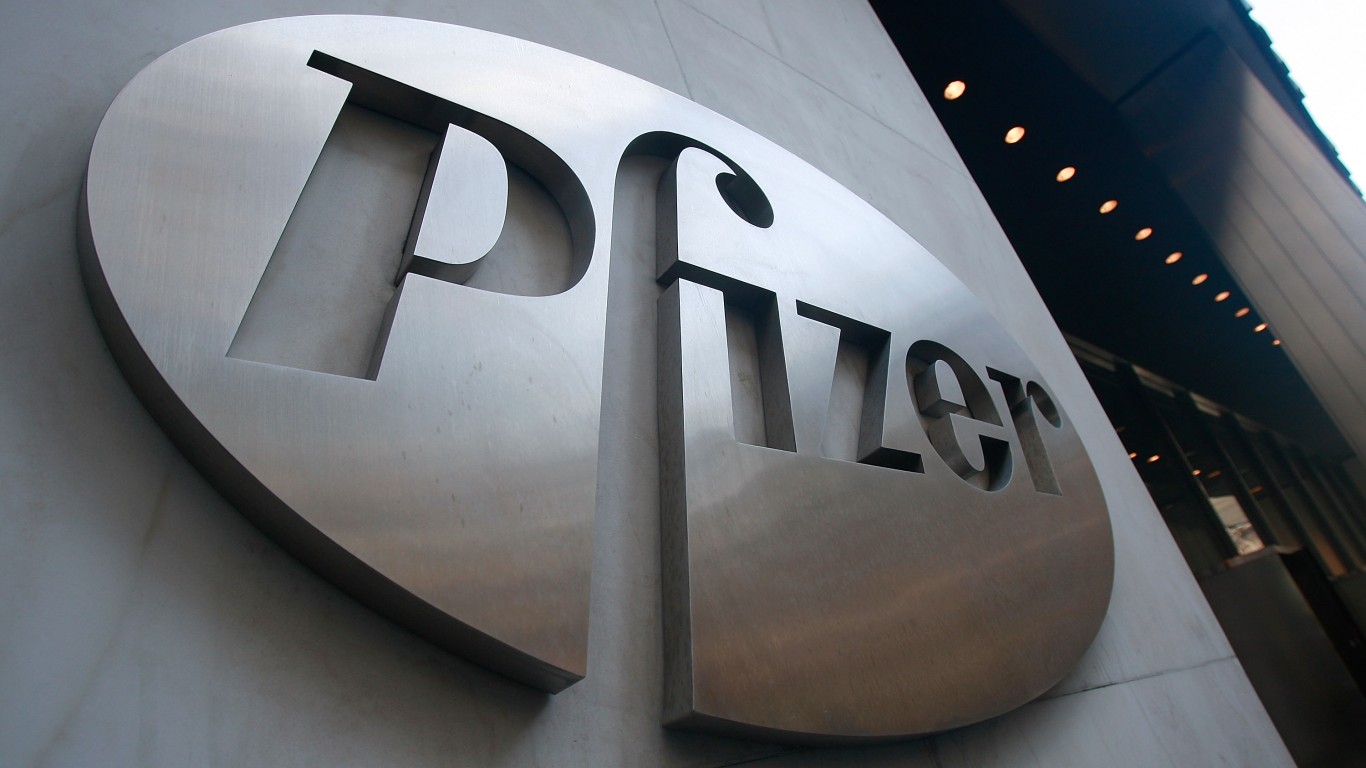
It takes a certain kind of courage to short sell blue chips, such as the Dow Jones industrial average components. Short sellers are betting on these companies to fail, or at least for their share prices to fall handily. Plus, those sellers are responsible for paying the dividends on the stocks they short.
Maybe it is little surprise that only three of the 30 Dow stocks had sizable short interest between January 15 and January 31; that is, more than 45 million shares short. Ten of them, a third of the index’s components, had short interest of more than 25 million shares.
While the bull market is quite long in the tooth — now well more than a decade old — and political and geopolitical concerns continue to grow, the markets still haven’t strayed far from all-time highs. Investors may wonder then what the short sellers expected from some of the biggest, most well-respected names on Wall Street with the new year underway.
As of the end of the month settlement date, the most recently reported period, short sellers favored Pfizer Inc. (NYSE: PFE), Microsoft Corp. (NASDAQ: MSFT) and Intel Corp. (NASDAQ: INTC) above all other Dow stocks.
Pfizer
> Shares short: around 61.03 million
> Change from prior period: 7.1%
> Percentage of float: 1.1
The latest rise in the number of shares short made this the most shorted Dow stock once more, even though the short interest was nowhere near the 97 million 52-week high seen in February of 2019. At the average daily trading volume on the latest settlement date, it would take investors nearly three days to cover their short interest.
The maker of Lipitor, Viagra and Xanax posted disappointing quarterly results last month. Its shares ended the final two weeks of January more than 8% lower, most of that retreat coming after the earnings report. Shares recovered a little afterward, though. The Dow was down more than 2% during the short interest period.
Pfizer stock closed most recently at $38.09 per share, which is up fractionally in the past week. The 52-week low of $33.97 was seen last August, and the 52-week high of $44.56 was reached back in July. The stock now trades less than 3% below where it did at the beginning of the year.
Microsoft
> Shares short: about 56.67 million
> Change from prior period: −10.9%
> Percentage of float: 0.8
Microsoft’s sharp short interest drop to the lowest level in four months allowed it to slip to the second spot on this list. The days to cover figure decreased to less than three as the average daily volume grew somewhat during the period. Short interest has been more than 60 million since the end of October.
During the period, Microsoft revealed its plans to become a much greener company. Its share price ended those two weeks more than 3% higher, despite being in the red earlier in the period. The Nasdaq retreated about 1% in that time. Intel shares pulled back a bit after the settlement date.
After ending the past week only fractionally higher, Microsoft stock closed trading most recently at $184.44 a share. That was in a 52-week range of $105.84 (seen about a year ago) to $190.67 (this week). The most recent share price is almost 15% higher year to date, compared to around a 3% gain for the S&P 500.
Intel
> Shares short: about 46.61 million
> Change from prior period: −16.4%
> Percentage of float: 1.1
Intel short interest has risen in seven of the past nine periods, but the stock stayed in the number three spot on the list despite the sharp drop as last month came to a close. Note that the 52-week high of more than 63 million shares back occurred back in July. It would take these investors more than two days to cover their short bets.
Analysts’ reactions to Intel’s record quarterly results were somewhat mixed. Short sellers watched the shares jump almost 10% after the report but then retreat and end the period with about an 8% gain. The S&P 500 slipped about 2% during the short interest period, but, like the Dow and Nasdaq, it has recovered since.
Intel stock was last seen trading at $67.41 a share, down from the recent multiyear high of $69.29 but well above the 52-week low of $42.86 seen last May. The latest share price is almost 11% higher than at the beginning of the year, while the Nasdaq is up around 6% year to date.
And the Rest
Rounding out the top five most shorted Dow stocks on the most recent settlement date were Exxon Mobil Corp. (NYSE: XOM) and Apple Inc. (NASDAQ: AAPL). The former saw a notable rise in the number of its shares sold short in those two weeks, while its share price pulled back more than 10% in that time. Asset sales propped up the oil supermajor’s latest quarterly results. The iPhone maker saw little change in the level of its short interest, as shares rose more than 4% but gave up that gain during that period. Its services businesses continue to be a growing and important part of the Apple empire.
Also notice on the following list of short interest changes in Dow stocks as of January 31 the notable rise at Boeing Co. (NYSE: BA) (737 Max grounding and quarterly net loss) and Walmart Inc. (NYSE: WMT) (weak holiday sales for retailers and coronavirus fears).
| Dow Stock | Short (millions) | Change | % Float |
|---|---|---|---|
| Pfizer | 61.03 | 7.12% | 1.10% |
| Microsoft | 56.67 | −10.94% | 0.76% |
| Intel | 46.61 | −16.41% | 1.09% |
| Exxon | 42.50 | 7.38% | 1.01% |
| Apple | 41.54 | −0.13% | 0.95% |
| Cisco | 37.31 | 5.16% | 0.88% |
| Verizon | 37.09 | 7.93% | 0.90% |
| Coca-Cola | 36.19 | −1.23% | 0.85% |
| Merck | 25.33 | 1.66% | 1.00% |
| Visa | 25.28 | −17.69% | 1.48% |
| JPMorgan | 24.75 | −1.79% | 0.80% |
| Johnson & Johnson | 20.87 | 2.20% | 0.79% |
| Chevron | 20.78 | −1.57% | 1.10% |
| Walmart | 20.75 | 16.99% | 1.49% |
| Walgreens | 20.53 | 0.11% | 2.78% |
| Procter & Gamble | 19.75 | 2.39% | 0.80% |
| Disney | 19.12 | 1.86% | 1.06% |
| IBM | 16.62 | −1.15% | 1.88% |
| Dow | 13.22 | 0.19% | 1.78% |
| UnitedHealth | 9.52 | 1.00% | 1.01% |
| Home Depot | 9.20 | −2.77% | 0.84% |
| Nike | 9.03 | 3.66% | 0.75% |
| 3M | 8.91 | −16.71% | 1.55% |
| United Technologies | 8.16 | 3.95% | 0.95% |
| McDonald’s | 7.81 | −10.93% | 1.12% |
| Boeing | 7.68 | 11.19% | 1.37% |
| American Express | 7.64 | −1.63% | 0.95% |
| Caterpillar | 5.48 | −20.09% | 0.99% |
| Goldman Sachs | 5.45 | −17.69% | 1.58% |
| Travelers | 4.00 | −4.15% | 1.57% |
Credit Card Companies Are Doing Something Nuts
Credit card companies are at war. The biggest issuers are handing out free rewards and benefits to win the best customers.
It’s possible to find cards paying unlimited 1.5%, 2%, and even more today. That’s free money for qualified borrowers, and the type of thing that would be crazy to pass up. Those rewards can add up to thousands of dollars every year in free money, and include other benefits as well.
We’ve assembled some of the best credit cards for users today. Don’t miss these offers because they won’t be this good forever.
Flywheel Publishing has partnered with CardRatings for our coverage of credit card products. Flywheel Publishing and CardRatings may receive a commission from card issuers.
Thank you for reading! Have some feedback for us?
Contact the 24/7 Wall St. editorial team.



